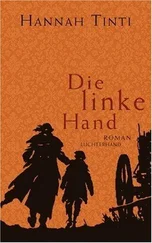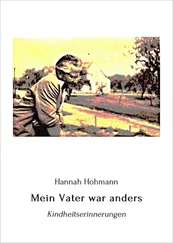—
The walk home from Uncle’s takes us through an expanse of tall, shining, swaying grasses. Suriya points to a tree house in the middle of the sugarcane field, which protects the crops from wild elephants. Men sleep up there, and if they feel the tremor of heavy footsteps, they throw firecrackers down to scare the elephants away. She gestures to the bamboo ladder. “You want to go up?”
Inside is a rumpled cotton sheet and the smell of wet leaves and an empty bottle of arrack. A cocoon of vacant waiting. I lie on my back. Blue light dapples the palm-leaf roof where the weave has pulled loose.
The first time I felt I really loved Brian was when he made me feel better during one of my bad nights on our first winter together. “You’re slumping,” he said, sitting down behind me on the edge of the bed — flannel pajamas, toothpasty breath. I normally had good posture, one of the things he liked about me. He took my shoulders in his hands and pulled backward to bare my chest.
“It’s happening again,” I said. “I need it to stop.” I kicked off my boot.
“What is it?”
“I don’t know. It replaces me.”
“Do you want me to hold you?”
“I think so.” He pulled me against his chest. My right big toe pried the wool sock off of my left foot.
“Harder,” I said. He wrapped his long legs around my waist and tightened his grip on my lower arms, crushing me into him. I love getting my blood pressure taken, always dread the pang of emptiness when the nurse presses the release button and the black cuff hisses as it returns my arm to itself.
“Think of somewhere you want to be,” Brian said.
The courtyard of Shirmani just before dawn. Lying on the grass as the stars fade into the childish brightness of daybreak. I closed my eyes and felt Brian’s heart beat against my back. The damp grass cooling the base of my neck and the koel birds’ slow whistle, a nude teenage boy diving off a boulder into a dark lake. I turned and kissed Brian’s cheek. “You made me feel better.” He had reminded me of that other version of myself, the young woman who knew her purpose, knew it wasn’t much, knew this smallness was something to be grateful for. “You made me remember when I was traveling in—”
Brian was so tired. Could I tell him in the morning? He was so glad I felt better. Could he please turn out the light now? I nodded against his shoulder. So many tiny failures on his part — larger ones on mine. Stop. Please. Here I am now, in the place I used to imagine myself when I needed courage to face my life in New York. Although if I had known how temporary that life would be, I suppose I wouldn’t have needed so much courage.
In the sugarcane field below the tree house, a peacock mews eerily, sorrow reaching for something pretty. Suriya calls up. “El? You are sleeping?”
—
When we get back to Hashini’s house, her husband, Rajesh, is laying red chilies on a strip of newspaper. Their shiny skins wrinkle under the harsh sun. His body is fiercely compact — the brown buds of his nipples too close together, his abdominal muscles like small stones slipped under his skin. “Jack be nimble, Jack be quick,” plays in my head, deadpan. Cut it out. There is something unsettling about the mind’s odd inner loops, like “Falling, falling, effortless flight,” which runs, wheezing, through my head sometimes while I’m having sex. But now I’m nodding and smiling and repeating the words “hello” and “thank you.” Rajesh grins back. The gap between his front teeth leaks red betel juice.
Hashini-Mommy walks through the backyard, holding her long skirt in front of her waist to make a basket. She disappears into a windowless clay hut in the backyard. The kitchen. I ask Suriya if I can see. Pockmarked pots and pans are piled against the wall. The stove is a clay cube with a cauldron resting on top of it, warmed by smoldering sticks. Hashini kneels on the dirt floor and peels potatoes, her hands a blur of unthinking strokes.
“Can I help?” Stupid question. “No!” Suriya barks, smiling.
So I sit still, resigned to aimlessness, waiting to feed off Hashini’s hard work. Would it feel good to have such a clear, constant purpose, or does Hashini feel wasted on one repetitive motion after another? Suriya sifts rice in a shallow, woven basket, churning the milky kernels in search of stones, which she tosses to the woods behind the house. The first time she made rice, she tells me, it had so many stones. Every bite was— She crunches her teeth together. I ask how old Suriya was when she started cooking.
“Six years old, seven years old. Like that. I must. Because at that time my father was cruel.” Her mother was afraid for Suriya and her brother to live with their father, so she sent them to live in a hut in the woods. A hut like for farmers. She brought them food at night. But one night their mother did not come. Suriya’s brother said, I hungry. Suriya clutches her stomach and groans, enjoying making theater of her past. She cooked rice the way she had seen her mother cook rice. But she didn’t know about stones. The rice had so many! She claps her hands to her cheeks and shakes her head side to side, as if the astonishing part of that story is that she ate poorly sifted rice. “Do you have a mother and father?” she asks.
“Yes. Sort of. They’re both alive. But my mother left me when I was eleven years old.” This is a sentence I’ve repeated so many times I no longer hear any difference between the meanings of the words. It’s easy to tell the truth about easily comprehensible difficulties. People tend to find me more likable and sympathetic when I tell this story right away. It makes me pathetic in an interesting way, and then later, no matter how sordid or strange or unsettling my behavior is, they have a handy excuse. I once overheard Brian on the phone with his sister, saying, in protest, “She barely had a mother!” I stifled a groan. It’s not that I don’t believe my mother leaving affected me, any less or any more than my father’s depression or my natural shyness. But none of these facts are an explanation for who I am. I’m still trying to find that out.
“What does it mean — left you?” Suriya asked. “She stopped to be your mother?”
“Oh no, she’s still my mother. She just met another man and decided she wanted to be with him instead of my father. So she went away and I didn’t see her for a long time.”
“Were you angry, Akki?” Suriya asks, addressing me the same way she does her older female cousins.
“Not really. Not at the time. Nangi.” I touch her wrist, proud I know the word for “little sister,” happy I’ve earned this new intimacy. “She wanted me to move with her, and I actually felt guilty for staying with my dad.”
“Dad means?”
“Father. I’m closer with my father. He’s my real parent and my mother is like a fake parent.”
“Did you find a new mother?”
“What do you mean?”
“A new woman to take care of you. An auntie or a lady in your village.”
“No — that makes sense, I guess, but — I still have my mother. We write letters and talk on the phone. We visit each other.” Actually, my mother has always insisted I visit her, that I need the vitamin D and swimming pools she seems to think are only available in Arizona. Plus, she doesn’t want to leave her family. She and Rick have teenage twin boys. IVF — she wanted new babies that badly. I’ve met them a handful of times. Unremarkable kids. It seems only fair that I make no effort to get to know them — what my mother wanted was a shiny new family, unencumbered by my father’s “negativity” and the “brutal” New England winters. And she seems genuinely happy making peanut butter sandwiches in their bright condo, wearing flip-flops year-round, drinking margaritas on the balcony with her thoughtlessly cheerful husband. It’s a relief in a way that she’s separate and okay. Worrying about my father is burden enough.
Читать дальше












